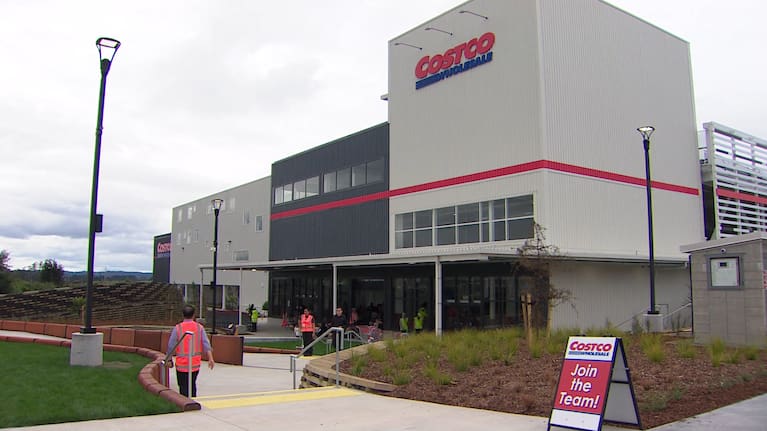The Government is launching a sweeping set of reforms aimed at boosting competition and making it easier for businesses to open and expand in New Zealand’s grocery sector.
The changes followed a Request for Information process earlier this year which revealed widespread frustration among prospective supermarket operators over restrictive zoning, slow consenting, and regulatory hurdles they said were making it “extremely difficult” to enter or expand in the market.
Economic Growth Minister Nicola Willis today said the Government was creating “an express lane” for new supermarkets to boost competition and deliver better deals for Kiwi shoppers.
She said international retail giant Costco had welcomed the reforms in talks with the Government and that they had confirmed the “express lane” consenting approach would assist with expansion plans.
Watch Economic Growth Minister Nicola Willis announce the reforms in a media conference here
Legislation would be introduced in November to amend the Fast-Track Approvals Act, allowing new supermarket developments that improve regional or national competition to qualify for accelerated consenting.
A Government Policy Statement on Grocery Competition would support decision-making under the new framework.
Currently, it takes an average of 18 months and up to $1 million to secure resource consent for a new supermarket. Under the new fast-track system, qualifying supermarkets could be consented in under a year.
A single building consent authority would be designated to handle supermarket developments nationwide while changes to the Building Act would make it easier for supermarket chains to use pre-approved “MultiProof” building designs.
Under the new fast-track system, qualifying supermarkets could be consented in under a year. (Source: 1News)
Reforms extend to the Overseas Investment Act, with new grocery-specific provisions to clarify investment pathways.
Willis said the Commerce Act would be amended to better combat “predatory pricing” with the introduction of an objective economic test for the prosecution of firms misusing their market power to exclude or stamp-out competitors.
The Government was also actively exploring ways to support food importers in bringing new product lines into the country.
The big change coming to boost competition at the checkout – watch on TVNZ+
Five prospective domestic competitors responded to the RFI alongside existing retailers with credible expansion plans.
However, Willis said major international players Aldi and Lidl did not participate.
“It’s possible that the changes we are announcing today will encourage them to take a more serious look at New Zealand.”
Costco can ‘see opportunities’ for more NZ stores
She said Costco was a major international grocery player whose annual revenue exceeded New Zealand’s GDP.

“Their single West Auckland store has already markedly changed competitive dynamics in that local area and has provided a major export-pathway for New Zealand food producers.
She said Costco has confirmed the express lane consenting approach would assist with future expansion plans. “They have also confirmed they can see opportunities for new stores to be built in New Zealand in the next few years.”
Some respondents to the Request for Information argued the only way to truly improve competition was the forcible breakup of Foodstuffs and/or Woolworths.
“A cost-benefit analysis is underway on specific options for restructuring the duopoly and will inform future advice I intend to take to Cabinet on whether further legislative changes are required to improve competition.”
New Zealanders spend more on groceries than most OECD countries, with food prices around 3% higher than the OECD average.
“Our objective is a more competitive grocery market that delivers better prices and more choice for Kiwi shoppers. We remain open to potential market-led solutions that may be put forward by the major incumbents.”
Consumer group calls for more ‘bold, decisive’ reform
Grocery Action Group chairperson Sue Chetwin welcomed the fast-track commitment and acknowledge Willis’ assertion that breaking up the duopoly was on the table, but urged “bold, decisive structural reform” to create “genuine relief” at the checkout.
“Breaking up this entrenched duopoly is the single most effective course of action if New Zealanders are to see lower prices at the checkout, and to see them quickly.”
She said the problem was not one of not enough supermarkets but concentration in the sector.
“Meaningful, enforceable structural changes — alongside streamlined planning processes for newcomers — are the only way to ensure genuine competition, fair pricing, fair treatment of suppliers and a thriving, accessible supermarket sector for all New Zealanders.”
Labour finance spokesperson Barbara Edmonds called today’s announcement “tinkering around the edges”.
“A fast-track regime for supermarkets makes sense, but it won’t make any immediate difference for New Zealanders who will keep paying high prices at the checkout today,” Edmonds said. “Nicola Willis still doesn’t have a timeline for when a new player could come into the market.”
However, ACT Party leader David Seymour said the announcements charted a “constructive path” and would make it easier for supermarkets to build, open, and complete.
“Pro-investment policies are the right track for supermarket reforms,” Seymour said, adding that ACT has long argued for reducing barriers to competition.
“New or incumbent supermarkets serve customers better when they invest in the supply chains that get the right groceries to the right place at the right time at a competitive price.”
He warned against regulatory overreach, saying it “scares away the very investment that would make the market more competitive”.
Seymour also criticised Labour’s past policies, including the grocery regulator, saying it “hasn’t actually helped shoppers”.
